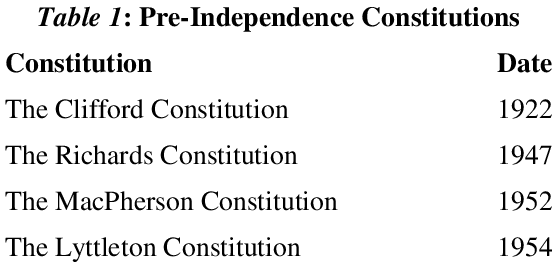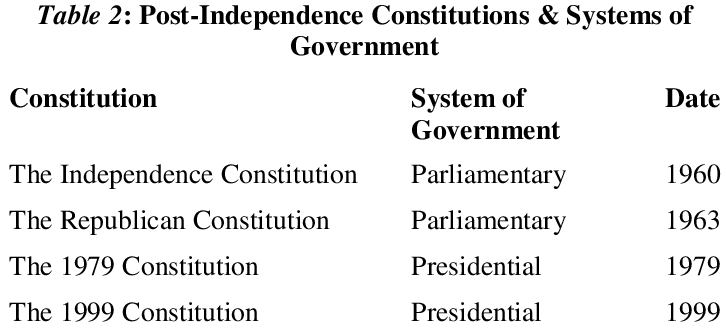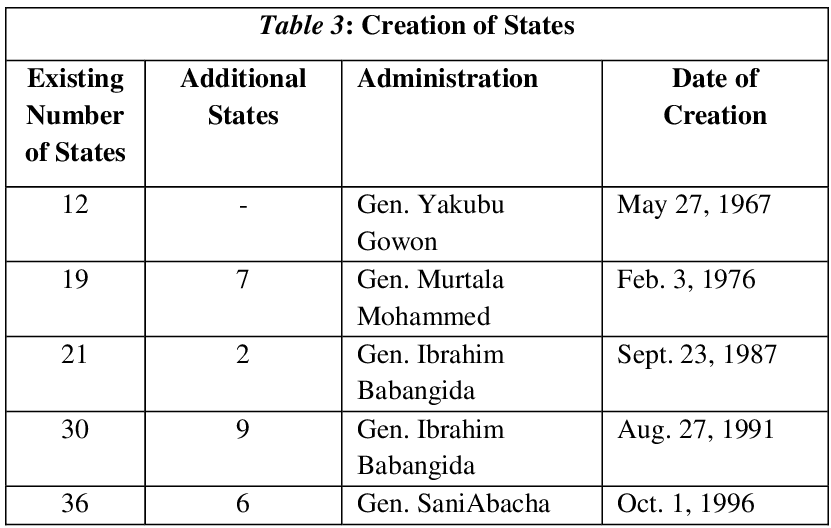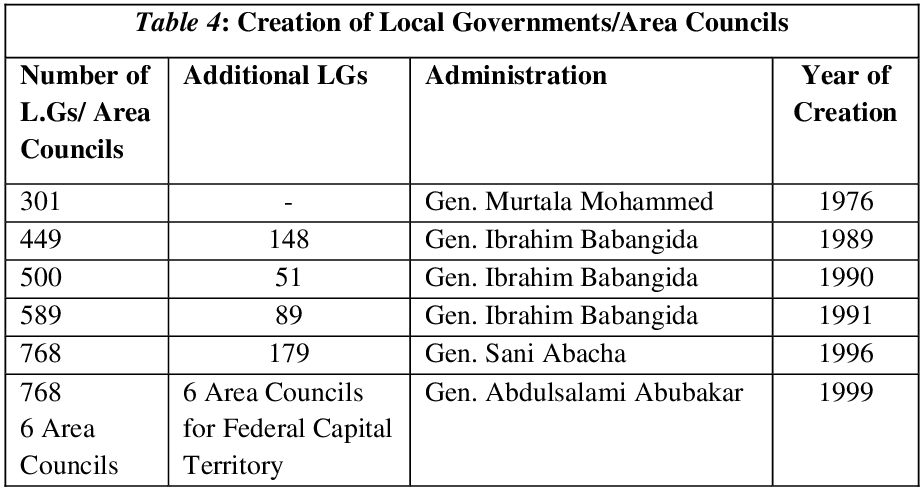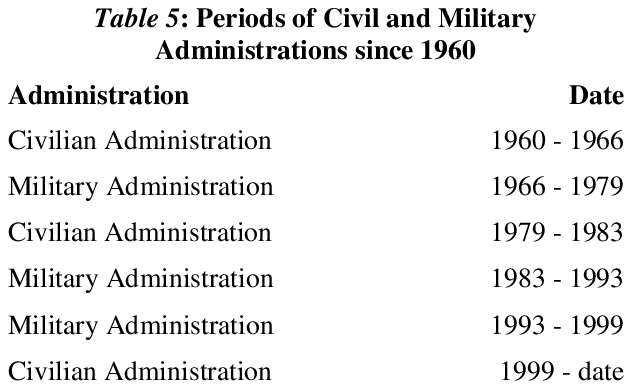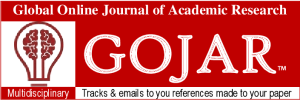
Global Online Journal of Academic Research (GOJAR), Vol. 2, No. 4, September-October 2023. https://klamidas.com/gojar-v2n4-2023-02/ |
|||
|
Peace, Unity and Nation Building: the Role of Individuals and Other Stakeholders By Bukar Usman
Abstract This paper is on the subject of peace, unity and nation building in Nigeria and the rest of Africa, with special focus on the role of individuals and other stakeholders. It was originally delivered at a conference organised in Abuja by the StandTall Africa Initiative. The topic, as considered in this paper, is treated under the following headings: constitutional provisions on role of individuals and stakeholders, responsibilities of government and other authorities, environmental impact on conduct of individuals and groups, and the need for skills development and modernity. Other dimensions of the topic discussed include: diversity, aggregation of interests and development of national consciousness; pillars of national stability and political neutrality; empowerment of youths and women; constitutional development; population explosion and sources of conflict; information communication technology and the media; and common problems of African countries. Keywords: peace, unity, nation building, individuals, Nigeria, Africa Introduction It is my singular honor and pleasure to deliver the keynote address for this all-important conference on Peace, Unity and Nation Building with specific reference to Nigeria and the African continent1. The conference organizers, StandTall Africa Initiative (STAI), have itemized six vital areas for discussion. They include:
I have been asked by STAI to focus my address on the sixth point – the role of individuals and other stakeholders. Presumably, the other resource persons will attend to the rest. I hasten to say that stakeholders in nation building include almost every individual or group, and so cover all of us attending this conference. Individuals invariably belong to one group or another. They have their stakes, some of which find expression in the group. Individuals have a role to play in the group, with some assigned positions of leadership to promote both individual and group interests. Constitutional Provisions on Role of Individuals and Stakeholders Like some of the earlier constitutions, the 1999 Constitution2 provides the duties of the individual citizen to include: i. to abide by the constitution, respect its ideals and institutions, the National Flag, the National Anthem, and legitimate and properly constituted authorities; ii. to protect and preserve public property, and fight against misappropriation and squandering of public funds; iii. to help enhance the power, prestige and good name of the country and defend the country and render national service as may be required; iv. to respect the dignity and religion of other citizens and their rights and the legitimate interests of others and to live in unity and harmony and in the spirit of common brotherhood; v. to make positive and useful contributions to the advancement, progress and well-being of the community where he resides; vi. to work conscientiously in his lawful and chosen occupation and to abstain from any activity detrimental to the general welfare of other citizens; vii. to ensure the proper upbringing of his children; viii. to participate in and defend all democratic processes and practices; ix. to render assistance to appropriate and lawful agencies in the maintenance of law and order; and x. to declare his income honestly to appropriate and lawful agencies and to pay his tax. Additional duties of the citizen have been embodied in the National Anthem and the National Pledge. In the National Anthem, the citizen is called upon, among others, to:
These provisions are complemented by the National Pledge which appeals to the citizen “To be faithful, loyal and honest… To defend (Nigeria’s) unity and uphold her honour and glory”. But, really, how far does the citizen know and perform all these? It would be safe to say that given the low-level literacy prevailing in the country, the generality of the citizens hardly know and appreciate their role in this regard. Often, we recite those provisions without giving deep thoughts to them, let alone endeavour to respond as expected of us. Responsibilities of Government and other Authorities On the other hand, the Nigerian Constitution 1999 spell out the duties and responsibilities of all organs of government and of all authorities and persons exercising legislative, executive and judicial powers, all of whom are required to conform to and observe the provisions of the constitution3. Their responsibilities are specifically declared to include:
The provisions, which extend to governance at the state levels, enjoin the states to recognize the diversity of the people and the need to promote a sense of belonging and loyalty among all the people of the federation. Aside from the above provisions, the Oaths of Office, the Code of Conduct and other legislations spell out how public officers should conduct themselves in running the affairs of government. It is quite apparent that were the citizens and government to observe the letter and spirits of the provisions of our Constitution and subsidiary legislations, nation building will greatly be facilitated in an atmosphere of relative peace, tranquility and harmony. Unfortunately, human failings and frailties create difficulties and cause disenchantment among the citizenry. Success in the attainment of all of the above goals emphasizes the importance of leadership at all levels and in all spheres of life. Leadership should, among others, be averse to evils of corruption, greed, selfishness and mismanagement of public funds. Environmental Impact on Conduct of Individuals and Groups All things being equal, it is expected that the interests of individuals subsumed in the group interests would be pursued and projected peacefully. However, an individual’s conduct, and also that of a group, is influenced by their immediate environment. Different environments breed peculiar interests. Nation building, therefore, requires the aggregation of those interests and the working out of suitable programmes, in the short and long term, towards the attainment of the common good as set out by a nation. The programmes so outlined demand constant review by the leadership to ensure that group and individual interests are protected and projected in a manner which gives them hope, makes life worth living and empowers them to live it well with all the basic necessities, such as food, shelter, health and education, provided. Skills Development and Modernity As identified above, the individual standing alone, or as a member of a group, has a role to play. Individual capacity to stand alone or contribute to the group interests could be enhanced by developing oneself. This could come about by the acquisition of the necessary skills for whatever role the individual plays in a traditional or modern setting. Of greater relevance today is the modern setting which itself is fast changing. The individual must therefore strive to keep up with the developments in order to sustain himself and his role. One obvious way is to acquire the necessary education and skill. This emphasizes the importance of education to the individual who is expected to contribute more meaningfully to the society. Diversity, Aggregation of Interests and Development of National Consciousness Having understood, so far, the place of the individual in the society, what role is expected of the Nigerian whose aggregate interests as well as the modalities for their attainment are embodied in the constitution and other documents and programmes? In view of her great diversity4, Nigeria is faced with enormous difficulties in forging unanimity and national consciousness as each and every individual or group strives to maximize their interests. It is this disposition and drive that account for misunderstandings among groups, and this presents the greatest challenge in nation building. Stakeholders agitating, without much success, to draw the attention of government to their plight, in desperation lose patience and resort to violence, thereby becoming a threat to peace and security and making it even more difficult to achieve their group and individual interests and the common good. The question often arises as to why the individual should be called upon to perform their duty when the nation fails in its duties towards them as spelt out in the above provisions. This also leads to the proverbial debate about the chicken and egg, which comes first? The answer is not an easy one. Therefore, there is need for mutual understanding. Be that as it may, government has a responsibility to provide the required environment for individuals to realize their full potential and contribute maximally to nation building. Pillars of National Stability and Political Neutrality In emphasizing the role of individuals and other stakeholders, it is strongly advocated that Nigeria, being a country of great diversity, should have pillars of stability that should be consciously nurtured to insulate them from political partisanship, especially in the face of increasingly unbridled quest for power in our polity. Such pillars exist, and they consist of the security agencies, the judiciary, traditional rulers and religious institutions. These pillars must be seen to demonstrate political neutrality in their actions and utterances. It is only then that they would continue to occupy moral high ground and command the respect of all. Such disposition should also condition and moderate the conduct of their staff or followers. Empowerment of Youths and Women While not playing down the role and needs of other stakeholders, youth and women have been identified as important segments of the society whose needs should be attended to so as to enhance their roles in nation building. It is quite apparent that current efforts need to be redoubled to engage them more productively in nation-building and avert the adverse effects the continuous neglect of these critical segments of our society would have on our phenomenally growing population. Nigeria has over 250 ethnic groups and 500 languages. From a population of about 50 million in the 1960s, it has grown to become not only the most populous country and the largest economy in Africa but the one with the largest youth population in the world, next to India and China. We must fully engage our youth and women to sustain this growth. Constitutional Development Efforts at nation building in Nigeria arguably started since 1914 following the amalgamation of the Northern and Southern Protectorates by the British colonial government. Several constitutions were brought into being with a view to providing a structure of government and security machinery to create an atmosphere conducive for individual pursuits and for government to prosecute its national development programmes. To date, there have been eight constitutions (See tables 1 and 2).
Restructuring The land area of Nigeria since her creation has remained virtually the same after the 1962 plebiscite which excised Southern Cameroon and the recent ceding of Bakassi Peninsula to the Republic of Cameroun. However, administration is becoming more and more complex. To satisfy the aspirations of the people, Nigerian territory has been restructured several times with the creation of states and local governments (See tables 3 and 4 and Appendix II). The nation has also fought a civil war (1967-1970) while governance since independence in 1960 has changed hands several times between civilian and military administrations (See table 5).
Population Explosion and Sources of Conflict It can be seen that nation building in Nigeria is ongoing. As the land area remains the same in the face of increasing population and demand for security and welfare, it should be anticipated that conflicts will continue so long as agriculture remains the main source of livelihood. There will be more and more scramble for land, scarce resources, and political clout; and poverty, joblessness and corruption, all of which are driving pauperized citizens and extremists to commit horrendous atrocities against fellow citizens, would continue to be major challenges. There are discordant voices about acceptability of the existing constitution. Others are craving for the creation of more states and local governments, even though the existing ones are yet to be satisfactorily consolidated. All these require good governance and sound leadership to avert or mitigate their unwholesome effects on nation building. Individual and group appreciation of the realities and positive contributions towards solving these challenges will be most desirable. Information Communication Technology (ICT) and the Media Development in Information Communication Technology (ICT) which drives the current digital era is a double-edged sword. Information is transmitted faster and on a wider scale. Negative and sensational information make headlines just as the positive ones. For the purpose of this address, focus is on the dangers of disseminating negative information without restraint. While the traditional media is relatively well controlled editorially, much of social media does not receive similar treatment. There lies the danger of what is currently described as fake news which, when disseminated through the web with little or no regard to societal sensitivities, cause upheavals liable to jeopardize national stability and nation building. For Nigeria, the fault lines are many and easily exploited, thereby making it much more difficult to maintain societal harmony. Thus, disinformation, insinuations, innuendoes, misrepresentations and so-called conspiracy theories being spread in social media, whether deliberately or unwittingly, must be guarded against as they have become the tools of modern warfare and social destabilization. They are now more frequently used than tanks, missiles and battalions. Good Governance and Policy Consultations In dealing with societal problems, Nigeria has experienced both limited and wide policy consultations under civilian and military administrations. Given the enormity and complexity of the problems, there is no alternative but to intensify good governance and policy options that involve interactions and consultations with stakeholders and relevant experts because to every problem there is a solution. Influences on policies include the organized labor, students, the media, political parties and environmental impact organizations. Not to be discounted are also external interests. Leadership at all levels on the part of operators should be able to meet societal aspirations on a progressive and sustainable basis. Common Problems of African Countries What applies to Nigeria largely applies to other countries in Africa, although what obtains in those countries may not be identical to ours. However, every country requires peace and security for individuals and groups to contribute their quota to the goal of achieving the common good. Unfortunately, only very few countries in Africa have gotten their electoral systems right. Therefore, to stabilize democracy as a primary condition for security and national development in a country of great diversity, which is the typical country in most parts of Africa, decision makers in positions of leadership at all levels should strive for a workable formula, known by whatever name, that ensures an inclusive system of governance. It is particularly imperative that such arrangements which require great individual and group sacrifice remain firmly planted in their minds whether or not it is constitutionally provided. Many countries have set up oversight organs to ensure financial probity and social justice. However, performances of some of such organs have fallen short of public expectations. What must be admitted in the case of Nigeria is that whatever measures governments have so far taken to generate employment in the country require redoubling those actions to quicken the realization of the objectives. Critical infrastructure such as power supply for public consumption and industrial production, better means of transportation, increased agricultural activities and mass education require immediate attention as we are in serious deficit. While leadership can alter the course of a country’s security and national development, globalization has made national borders politically and socially porous. Hence convulsive events in one country can spill over into another and impede her security and the well-being of her citizens. It is common knowledge though that there are scores of countries on the continent facing serious security challenges almost all arising from the struggle by individuals and groups to maximize their takes from resources available in their countries. This has led to the creation of several regional and continental organizations to enable them face common problems and borrow a leaf from the successes recorded by one country or another. The challenge here is to make those organizations achieve the desired end within the earliest possible time. Security situations must not be allowed to deteriorate to a stage of despair and helplessness whereby people would resign their fate to divine intervention for their salvation. Conclusion It is hereby emphasized that there is serious relationship between security and national development. Peace is required for human activities to thrive. While development may not guarantee peace, it would certainly mitigate human excesses arising from deprivations. Resources which should otherwise be required for national development, in times of social upheavals, are often diverted from other areas towards ensuring the security of lives and property, thereby retarding national development. Aside from the resources required towards the restoration of peace, no serious production or activity could be undertaken by individuals and groups in any serious security situation, more so if such a situation is prolonged and widespread. Finally, let me thank STAI for sparing time and resources to create this important forum. I wish STAI every success in its continuing effort to promote leadership development, education and entrepreneurship in Nigeria and the African continent. Endnotes
|
|||
|
